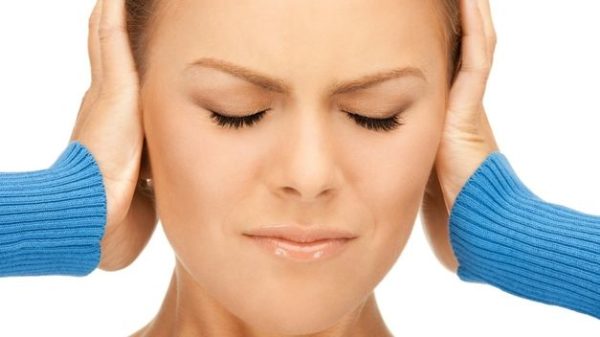Ringing in the ears (tinnitus or tinnitus) originates in the ear and not in the environment. It is a symptom and not a specific disease. Tinnitus is persistent, between 10 and 15% of people experience this hearing disorder to a greater or lesser degree.
They are called tinnitus or tinnitus and consist of the perception of an auditory sensation that does not correspond to any real outside sound.

The noise perceived by people affected with tinnitus can be a buzzing, jingling, roaring, hissing or hissing sound, and is often associated with hearing loss. Some people hear more complex sounds that can vary at different times. These sounds are more noticeable in a quiet environment and when you are not concentrating on something else. In this way, tinnitus tends to be more annoying when it comes to falling asleep. However, the experience of tinnitus varies greatly from one person to another. Some are very uncomfortable or worried about their symptoms while others find them quite tolerable.
Subjective tinnitus is by far the most common type. They are due to abnormal activity in the area of the brain responsible for the processing of sounds (auditory cortex). At this moment it is not well understood why this abnormal activity occurs
The objective tinnitus is much less frequent. It is a real noise generated by some structure located in the vicinity of the ear. Sometimes you can perceive these sounds responsible for objective tinnitus if you listen carefully.
Causes
Subjective tinnitus
More than 75% of ear-related disorders include tinnitus as a symptom and people suffering from hearing loss develop tinnitus whatever their cause. The most frequent causes are
- Exposure to loud noises or explosions (acoustic trauma)
- Aging ( presbycusis )
- Certain medications can damage the ear ( ototoxic drugs )
- Ménière’s disease
Other causes of tinnitus include middle ear infections, disorders that block the external ear canal (such as an external ear infection [otitis externa], excessive earwax or foreign bodies), problems related to the eustachian tube (which connects the middle ear and the back of the nose) due to allergies or other causes of obstruction, otosclerosis (disorder due to excessive bone growth in the middle ear) and temporomandibular disorders. A rare but serious cause is an acoustic neuroma, a benign (non-cancerous) tumor of part of the nerve that comes from the inner ear.
Supplementary tests
Possible tests for people with tinnitus include
- A hearing test (including tympanometry )
Most patients should have a hearing test performed either by the doctor or by a hearing technician (audiologist). If the tinnitus affects only one ear and there is a loss of hearing, an MRI with gadolinium should be performed. If the tinnitus lasts more than 6 months, it affects only one ear and the hearing is normal, a nuclear magnetic resonance should be performed. Patients with tinnitus pulsatile often require magnetic resonance angiography ( MRA ) and sometimes conventional angiography.
Noises in the ears are called tinnitus or tinnitus and consist of the perception of an auditory sensation that does not correspond to any real outside sound. It can be felt in one or both ears or in the head and is usually perceived as a beep, murmur, buzz, cricket, bell, etc. They can be pulsatile, intermittent, or continuous.
These sounds are very frequent, the majority of the population has experienced it on occasion, and between 10-15% of adults suffer from it chronically for periods of more than three months, which sometimes affects their quality of life and causes sleep disorders, inability to concentrate, anxiety and depression.
They are more frequent in industrialized countries, in people over 50 years old, or in individuals exposed to noisy environments. Sometimes they are associated with decreased hearing.
When they are pulsatile, they may be due to vascular problems in the head or neck in relation to arterial narrowness, hypertension, heart problems, etc .; Recommended medical study.
Read More: How to Get Rid of Crackling Sound in Ear
If they are not pulsatile they can be caused by ear problems such as infections, or earwax, sometimes by certain drugs (some anti-inflammatory, antibiotics, antineoplastic, diuretics, etc. can cause them), etc.
For its assessment it is important to know how they are, where they are located, their impact on the quality of life, accompanying symptoms, triggers, diseases of the sufferer and drugs that are being taken. An ENT examination that is usually normal may be recommended for your study. Sometimes other tests such as audiometry, or imaging tests, may be needed, depending on the diagnostic suspicion.
They require a more thorough medical study to rule out possible secondary causes in cases of unilateral, pulsating tinnitus, which continuously interfere with the quality of life, which are associated with significant headaches, with visual changes, with sudden major deafness, with neurological alterations. or those that occur after craniocerebral or cervical trauma.
They are generally intermittent, do not relate to relevant health problems and decrease or remit spontaneously without requiring any treatment. Sometimes adaptive and masking therapies of the beep with other sounds (music, headphones) are advised to reduce its intensity and impact on the quality of life. It is recommended to avoid or treat the trigger if there is, moderation in the consumption of salt and caffeine, avoid alcohol and tobacco and try to reduce work or family stress.
To prevent its appearance the most effective is protection against noise and avoid exposure to other possible risk factors.
